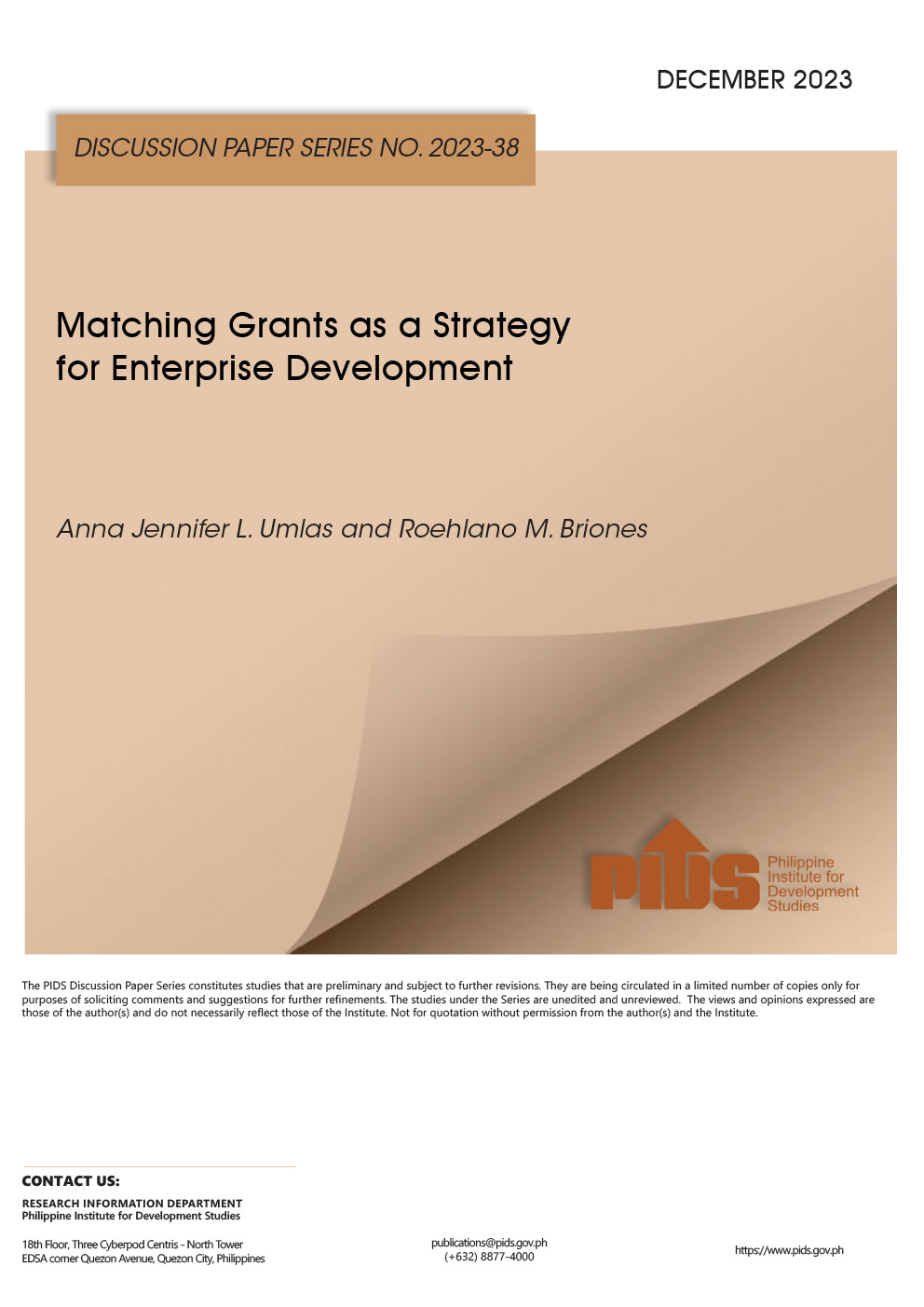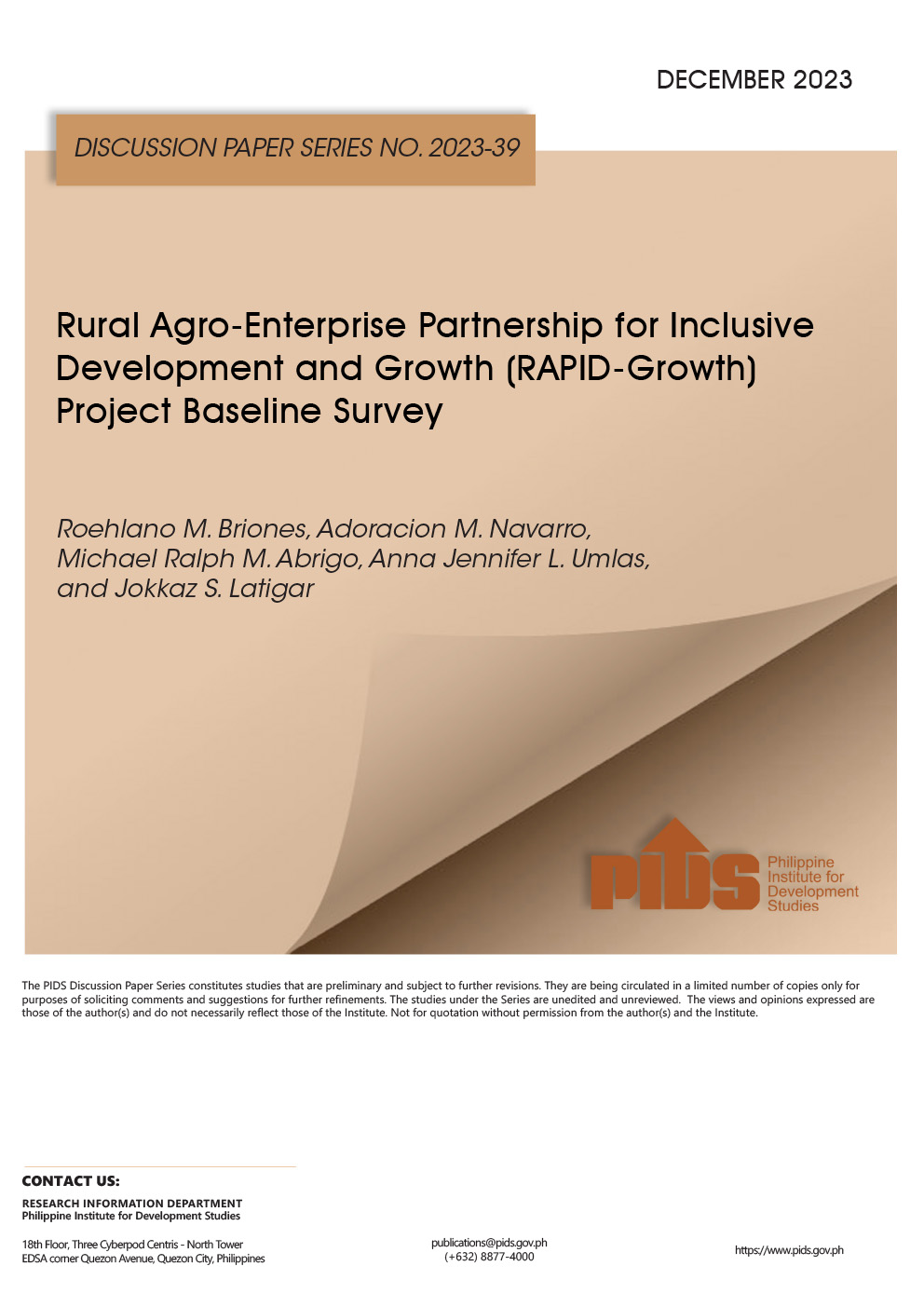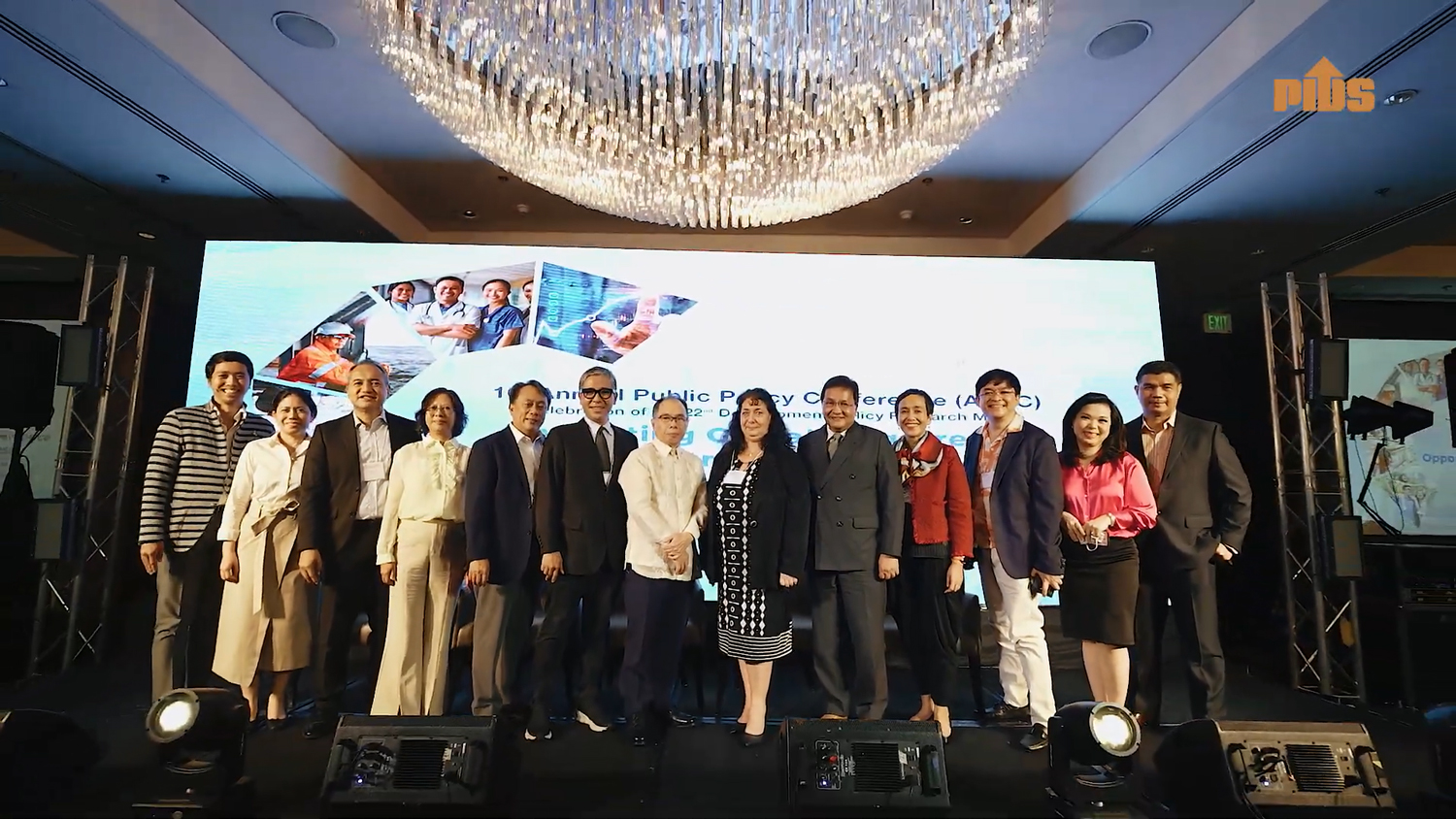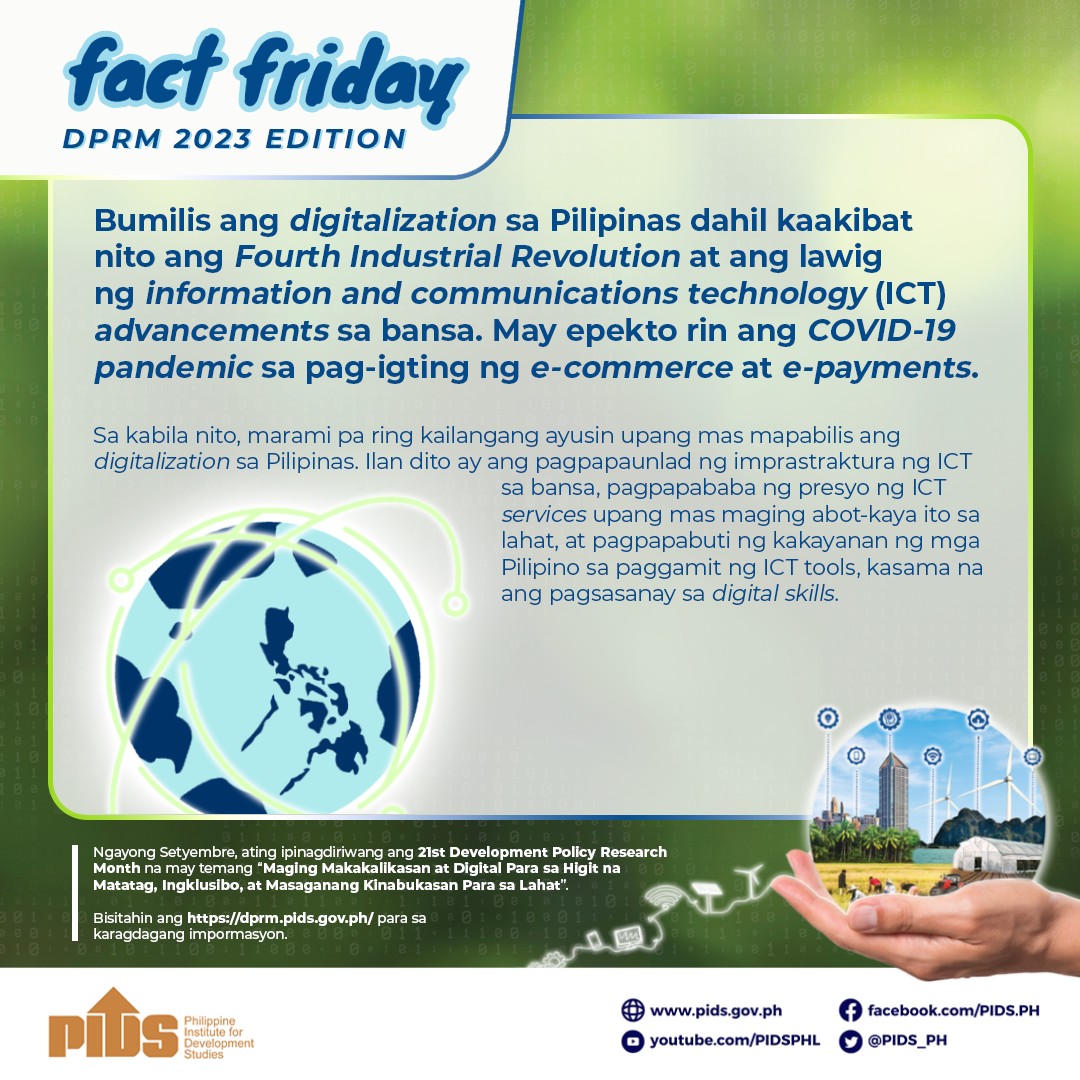Agricultural policymakers and thought leaders highlighted policy options to facilitate greater trade and investments in the domestic agriculture sector against the backdrop of the ongoing coronavirus pandemic at a three-part online forum that was held recently.
Speakers and participants at the Agriculture Investment Policy E-Conference series, hosted by the European Chamber of Commerce of the Philippines (ECCP) and its Agriculture Committee, weighed in on policy updates and recommendations to strengthen value chains,
improve regulatory processes, and promote market access in the sector.
Reimagining agricultural value chain
Speaking at the first leg of the virtual event series, Agricultural Credit Policy Council (ACPC) Executive Director Jocelyn Alma Badiola acknowledged that both supply-side issues and demand-side challenges persist which slows down ACPC’s work to effectively finance smallholder farmers.
Badiola laid out strategies to promote easy access to affordable, convenient, and sustainable financing vehicles—engaging government financial institutions and non-government institutions as partners; improving loan processing time; strengthening coordination with other government agencies; and integrating digital solutions in the loan application process, loan disbursement, and reporting.
Meanwhile, Ralph Mariano, a senior official on rural institutions at the National Economic and Development Authority, encouraged the private sector to work with the government on agricultural infrastructure investment on establishing post-harvest and marketing facilities, development of digital infrastructure and platforms, and establishing efficient transport and
logistics systems.
“The private sector will play an important role in supplementing government efforts and augmenting public resources as the latter can mobilize the former’s capital to fully or partially finance infrastructure projects and tap their efficiency and expertise in project delivery and management,” he elaborated.
As for sustainable agricultural extension, Institute for Social Entrepreneurship in Asia President Maria Lisa Dacanay made a case on food sovereignty and empowerment to smallholder farmers to meet food security challenges. She cited the policy recommendations of a 2013 United Nations Conference on Trade and Development report to promote sustainable consumption and production systems as mainstream agricultural practices.
On the future of the agricultural value chain, Agro-DigitalPH Founder and Chief Farming Officer Henry James Sison said that stakeholders should adopt a digital-first mentality to realize the gains of the so-called Agriculture 4.0. He also urged leveraging economies of
scale such as farm clustering and consolidation as well as creating an ecosystem that supports the longevity of the different players.
Likewise, reskilling farmers, to not only make them part of the ecosystem but agents of influence is critical, he added.
Better regulations for better agriculture
The second installment of the series featured resource speakers who took a closer look on the agricultural regulatory landscape namely on sanitary and phytosanitary (SPS) measures, customs facilitation, and agricultural standards and practices.
Nihaya Ariraya from the office of Department of Agriculture (DA) Undersecretary for Regulations and Infrastructure Zamzamin Ampatuan pointed out that current undertakings include reviewing SPS regulations to conform with international standards, drafting country positions for bilateral and multilateral trade agreements, and drafting a special order to streamline authorization procedures for businesses, among others.
She said that these measures will support the government’s fight against biosecurity threats such as the African swine fever and fall armyworm.
In terms of trade facilitation, Assistant Commissioner Vincent Philip Maronilla of the Bureau of Customs (BOC) gave a refresher on cargo clearance procedure and apprehensions of agricultural products. Maronilla also noted the BOC’s continued efforts to combat the illegal
entry of agricultural commodities.
Asked which agricultural products are the most smuggled, the customs official pointed out that it depends on the season as the most smuggled goods are those “which in a particular time the DA actually regulates very strictly.” Official BOC figures reveal that a total of 78 shipments of agricultural products from various ports were apprehended by the agency in
2020 down from the 94 shipments it recorded the prior year.
The session also highlighted how standards and good practices in agriculture contribute to the country’s sustainable development goals. Assistant Director Mary Grace Mandigma of the Bureau of Agriculture and Fisheries Standards together with other technical specialists answered questions from the audience pertaining to animal and plant safety and certification
guidelines, to name a few.
Making inroads through market access Anton Simon Palo of Foodlink Advocacy Co-operative opened the concluding webinar with a note many cooperatives need support in finding buyers for their products. He highlighted the role of partnership institutions to link farm groups with the government and private sector.
“For Filipino farm organizations to effectively participate in your value chain, you have to effectively participate in theirs,” he remarked.
Market access at a bilateral level is also featured in the webinar with Department of Trade and Industry (DTI)-Bureau of International Trade Relations Director Angelo Salvador Benedictos emphasizing the agricultural trade linkages between Europe and the Philippines.
Benedictos mentioned that the DTI is maximizing availment of the country’s preferential trade arrangements with the European Union (EU) under its General Scheme of Preferences Plus (GSP+) especially on agricultural commodities.
Additionally, the senior trade official bared that the agency is pursuing a more long-term mechanism in bilateral relations with an EU-Philippines free trade agreement (FTA). This comes on top of an existing FTA of the country with the European-Free Trade Association.
Doing so will unlock “illustrative tariff advantages for Philippine agriculture exports…and provide a permanent and more stable platform to enhance and facilitate bilateral trade and investments.”
On the competition front, Philippine Institute for Development Studies senior fellow Dr. Roehlano Briones dismissed the common impression of an adversarial relationship between large agribusiness firms and small producers to level the playing field.
He advocated for a more collaborative relationship among large and small enterprises to attain this objective.
“Convergence” among rural development agencies, private sector participation, and
capacity-building of farmer and fisherfolk enterprises are also a few ways to support such
efforts.
Meanwhile, Chris Ilagan, Corporate Affairs Director of Cargill Philippines, shared emerging
trends affecting the food sector such as localization of supply chains, e-commerce, climate
change, growing protectionist tendencies, and shifting health and nutrition preference,
among others.
Ilagan also recalled policy recommendations of the Joint Foreign Chambers of the Philippines to improve market access in the domestic agribusiness landscape.
Specifically, he cited proper implementation of ease of doing business laws, strong investment incentives, removal of investment restrictions, increased infrastructure investments, research and development, extension services, as well as inking new trade agreements.
The ECCP Agriculture Committee enables collaborative engagement and policy advocacy regarding sustainable agriculture development through regular interaction among stakeholders and information-sharing activities.
It works closely with the government to develop a more inclusive and robust regulatory framework that will benefit smallholder farmers, consumers, businesses, and the community at large. It is led by Ruth Novales, Vice
President – Corporate Affairs Executive of Nestlé Philippines, as Committee Chairperson and Dr. Mary Ann Sayoc, Public Affairs Lead of East-West Seed, as Committee Co-chairperson.
Agri experts see more elbow room for policy reforms to drive biz opportunities












